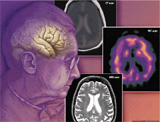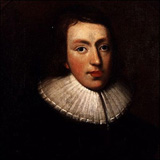Notes on counselling
Dementia — personal encounters
Editor’s note:
Medicine is not just a science, nor even an art, though it has both these sides to it. By the very nature of the work, a medical doctor has to come across and present to himself existential questions about life, birth and death and find answers to the strange enigma of this twin-natured life, ‘the mystery of God’s covenant with Night’. In an answer to this dilemma posed before many practitioners of medicine, this sensitively written article based on personal encounters, explores a philosophical and spiritual side that turn this once noble profession, again into what it is truly meant to be, — a dedicated service to the Eternal in the garb of mortal man.
A neurologist was extolling the merits of a new drug for Alzheimer’s dementia in a clinical meeting. Each time he had to mention the hapless demented subject, he used the adjective ‘vegetative’. Being a psychiatrist and being the son of someone who had Alzheimer’s dementia, the repeated use of the term ‘vegetative’ struck a chord in my heart. I objected and explained that at times when a demented elderly lady enters my busy hospital clinic at her first visit and bestows a familiar smile discovering a long-lost childhood friend in me, well, the room lights up. It is such a sweet and rewarding experience. She sits by my side and I stroke her skin. She feels secure and reassured.
The concept of Integral Health takes me a step ahead. Who has come to me for therapy? Which part of the being is the primary target of my intervention? Not the atrophied brain which needs something like Donepezil or Rivastigmine. Not the paranoid thought which may need a low dose of Quetiapine or Clozapine. Not the depression that may need a low dose of Escitalopram. Not the agitation that may need a bit of mood stabilisers. Not the Parkinsonism that may need Levodopa. Not the incontinence, not the insomnia, not the vertigo, not that bit of deafness, not that failing eyesight.
Deep inside the being is a secret essence that maintains the flow of life, supports the élan vital. It is a veiled sovereign in a fourth dimensional space. It is actually a beyondego principle. This principle called the Psychic Being represents the Ātman of the Indian tradition in its evolving form. The ego is only a dark shadow of this true integrating principle. The ego is necessary at the initial stage to give a self-conscious identity, but at a certain stage of inner progress needs to be surpassed by the Psychic Being. The consciousness of the Psychic Being is free from psychological disturbances. It is not affected by any illness; its essence is not diminished by the cognitive decline of the dementing process. It is immune from all adversities. It gives a sense of wholeness, integrality and unalloyed joy. The quintessence of Integral Health lies in this shift from the discord of our outer personality to the harmony of the Psychic Being.
It is this inmost essence of the individual and not the atrophied brain which is the altar at which our therapeutic service has to be offered. The Psychic Being carries in its consciousness the imprints of the deepest and the most intense peak-experiences in life. This consciousness outgrows the individual lifespan and the memory-traces of the preserved peak-experiences act as templates for future lives. The rest of the memory-base is neither recorded by the psychic consciousness, nor outgrows the individual lifespan. It matters nothing if an elderly subject has a cognitive decline. The Psychic Being is untouched by the outer memory loss and carries the essence of the most intensely lived moments into future lives.
When I approach a subject with dementia or a terminally ill subject, I am not demoralised. I know that I am not serving the outer personality. I am not affected by the cognitive decline or the imminent death. I acknowledge the presence of the inmost essence and express my gratitude that it accepts my service. I consider it a matter of grace that an elderly subject has visited my therapeutic space. Each such visit is a moment of honour, a matter of pride. I know that I must never make the mistake of denigrating an elderly subject, never consider that the embodied Psychic Being can be labelled as non-productive, vegetative. For then the Divine afflatus which lends me its healing power can withdraw its boon.
Our most important concern for the subject with dementia is to restore the sense of self-esteem. So many times I have quoted Milton’s ‘On his blindness’ to demented subjects. Milton overcame the existential crisis due to his blindness by identifying with the sentries in the palace of God. The sentry does not run like a busy executive under the illusion of activity. He just stands still but that is also a God-given role. Likewise, a mere cognitive loss does not rob one’s role to serve God. God also needs people who serve in silence.
My wife, a clinical psychologist, used an innovative method to restore the self-esteem of my father when he had dementia. She used to show him the family album and helped him to recognise and relive some of the proudest and happiest moments of his life. She used to remind him how his sacrifices made his children build their careers. He never needed an anti-depressant. Something more happened. He was a geneticist but uttered something during his illness which he had never expressed in his premorbid state. He said that Sri Aurobindo had ‘somatic mutation’. He did not remember the context in which that term should be used. But it was a technical way to describe the state of Sri Aurobindo when his physical body remained fresh without decomposition for five days after his departure on 5th December, 1950. Memory is stored in consciousness that uses the brain for expression but is actually independent of the brain. In conducive conditions, a suprarational faculty like intuition can awaken a dormant memory even in a demented subject.
One should never lose one’s sense of optimism when dealing with demented subjects. So many times I have seen that by losing one’s cognitive capacities, one also loses the capacity to doubt. When such a subject prays, there is a light that shines behind that blank stare.
Dr. Soumitra Basu, a practising psychiatrist, is the Director of a new school of psychology, the Mira Vision Trust. He is also one of the editors of NAMAH.
Share with us (Comments,contributions,opinions)
When reproducing this feature, please credit NAMAH,and give the byline. Please send us cuttings.


